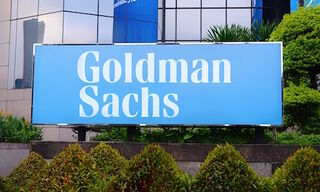Lombard Odier: Possible U.S. Tariff Cuts on China in 2022
Lombard Odier chief economist Samy Chaar spoke about ongoing U.S.-China tensions, underlining that while strategic competition will remain, relations could improve in 2022 in areas such as reduced tariffs.
While the U.S. and China are expected to be locked in strategic competition over the long term, relations could improve in the near term especially with regards to trade, according to Lombard Odier’s Samy Chaar.
«I would say that this confrontation between China and the U.S. is something that will continue in the years to come but for 2022 we don’t expect a major escalation,» he said during a recent virtual roundtable.
«It is possible that at some point in 2022, we see some of these tariffs against Chinese exports to the U.S. being cut.»
Tech Race
Despite the tensions, Chaar notes that this could be positive for the economic environment as the competition revolves around constructive areas that will require more funding.
«Thankfully, I would say the tensions are not around the military. It’s more around the strategic economic competition on the technology front,» he explained.
«So there is a bad sign to it which is the fact that the two main economies on the planet are confronting one another but there is also a good side to it which is the two parts want to win the technology race. It means they will invest a lot of money in that field to make sure that they have technology dominance over the counterpart.»
Overweight Asian High Yields
On investments in China, Lombard Odier highlighted attractive opportunities in the high yield fixed income market in spite of ongoing troubles in the property sector.
«We are convinced that Chinese authorities will not let the real estate market to tumble and they will take a great measure to safeguard that very important part of their economy,» said Lombard Odier’s private banking chief investment officer Stéphane Monier.
«Of course, we will recommend a very active approach. There will be defaults but currently on a Chinese real estate high yield, you can have yield of something like 25 percent so you are more than compensated for the potential default that will happen in that sector.»



























